Two brothers have spoken out about being diagnosed with a rare form of dementia in their twenties.
Brothers Jordan and Cian Adams, aged 28 and 23, had their lives turned upside down after learning they had inherited frontotemporal dementia (FTD) from their mother.
A rare form of the neurocognitive disorder, FTD can often run in families due to a single ‘faulty’ gene passed down from parent to child.
This is known as familial FTD and impacts 10 to 15 in every 100 people with FTD according to research from Alzheimers UK.
After their mother Geraldine died from the condition in 2016, aged just 52, the brothers and their older sister Kennedy opted to undergo genetic testing for the condition.
Kennedy would ultimately learn she had not inherited the condition while Jordan and Cian received the devastating news that they were carriers of the gene and would develop FTD later on in their lives.
Unlike other types of dementia, FTD is typically diagnosed at a much younger age range of between 45 and 65.
Aware of what awaits them after witnessing what happened to their ‘loving, generous and vivacious’ mother, the brothers have now decided to make the most of their ’15 good summers’ while also raising awareness about the condition.
“Our lives may be shorter than most but this has made us both determined to make the most of the time we have,” Jordan said in an interview with MailPlus, adding that the diagnosis had given him a ‘license to live’.
“A million times over I wish this had never, ever happened, that we’d never had to deal with this,” Cian added.
“It’s horrible and I wish it wasn’t the case but it has given us meaning and a chance to make a difference in the world.”
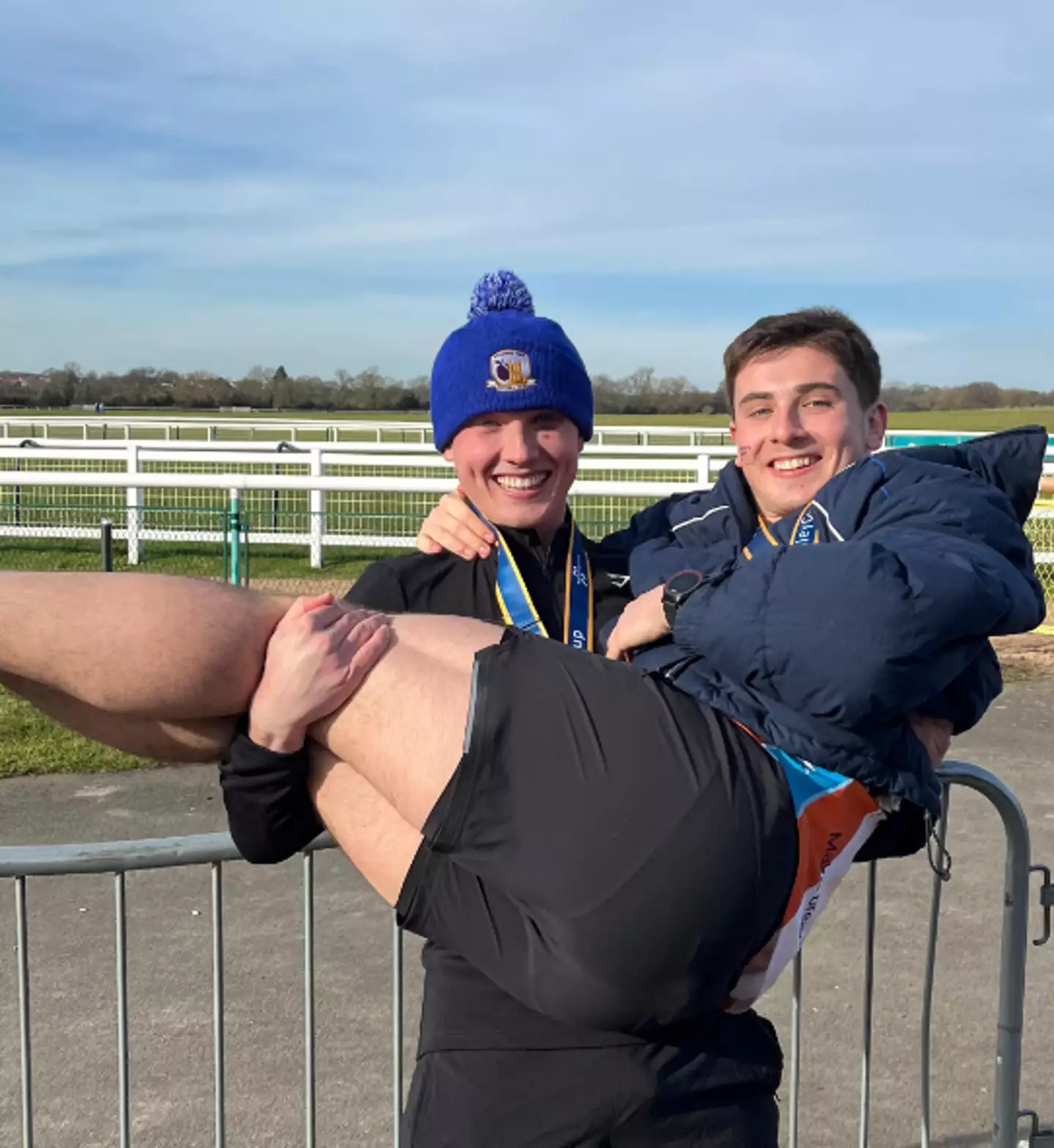
Brothers Jordan and Cian Adams (Instagram/jord_adams)
The pair are also aware of the risks of passing the condition on to their own children, with Jordan and his wife Agnes making the heartbreaking decision to terminate a pregnancy after discovering the foetus had the mutated gene.
“Me and my partner found out that she was pregnant. But because obviously we want to make the informed choice that we don’t want it to be passed on to our children,” he explained in a previous interview with Good Morning Britain.
“We unfortunately went through a stage of genetic testing for the child and found out that they were a carrier of the gene.
“So we had to, unfortunately, terminate that pregnancy because we didn’t want that child to have to go through what we did in our childhood.”
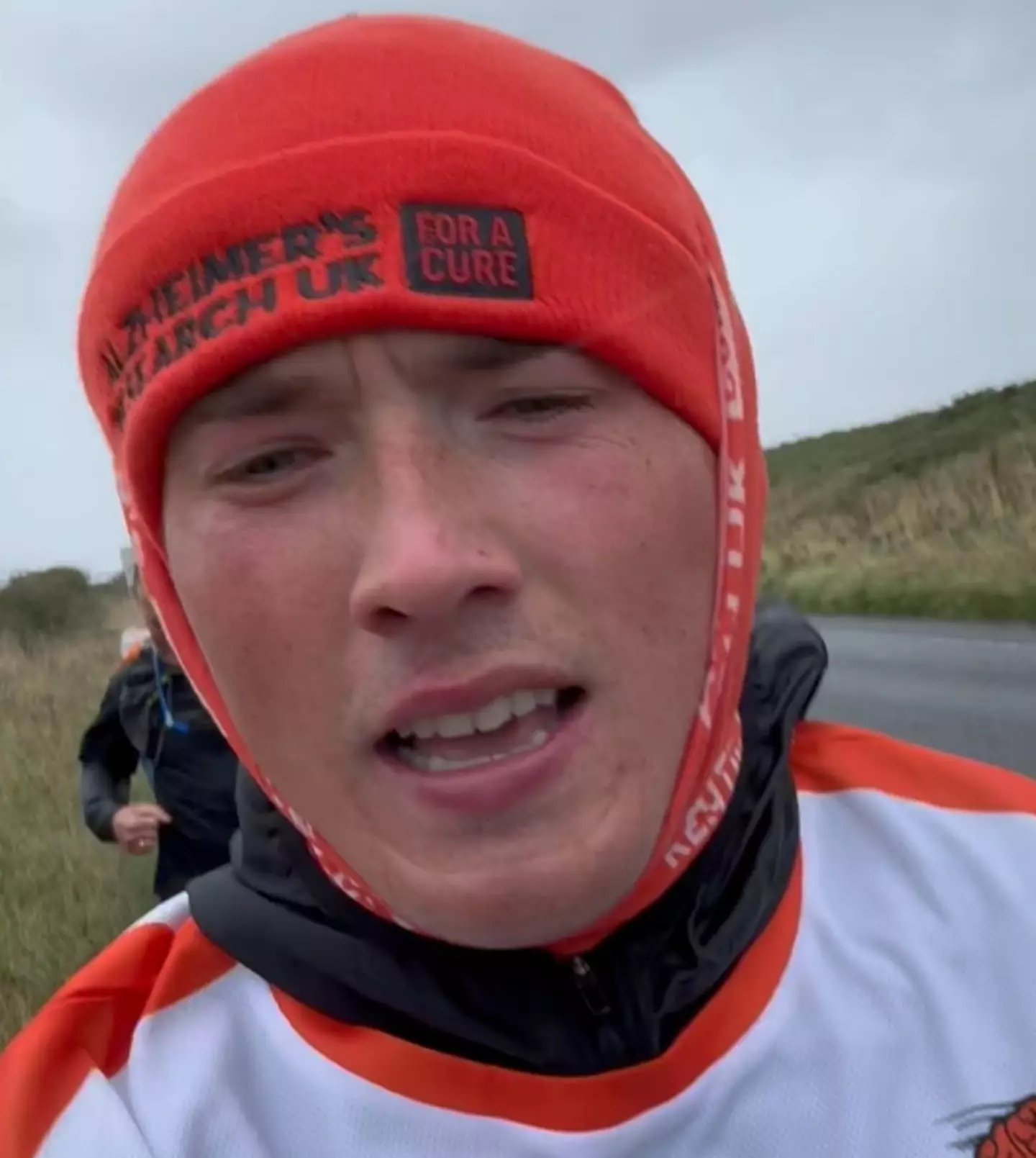
The brothers are now running the length of the country to raise funds for Alzheimers Research UK (Instagram/jord_adams)
The brothers – who are both keen runners – have decided to undergo a gruelling run from John O’Groats, Scotland to Land’s End in Cornwall to fundraise for Alzheimers Research.
Jordan and Cian have raised over £150,000 at the time of writing and are hoping to raise around £1 million for the charity in their lifetime.
A link to their fundraiser can be found here.
Featured Image Credit: (Instagram/jord_adams)
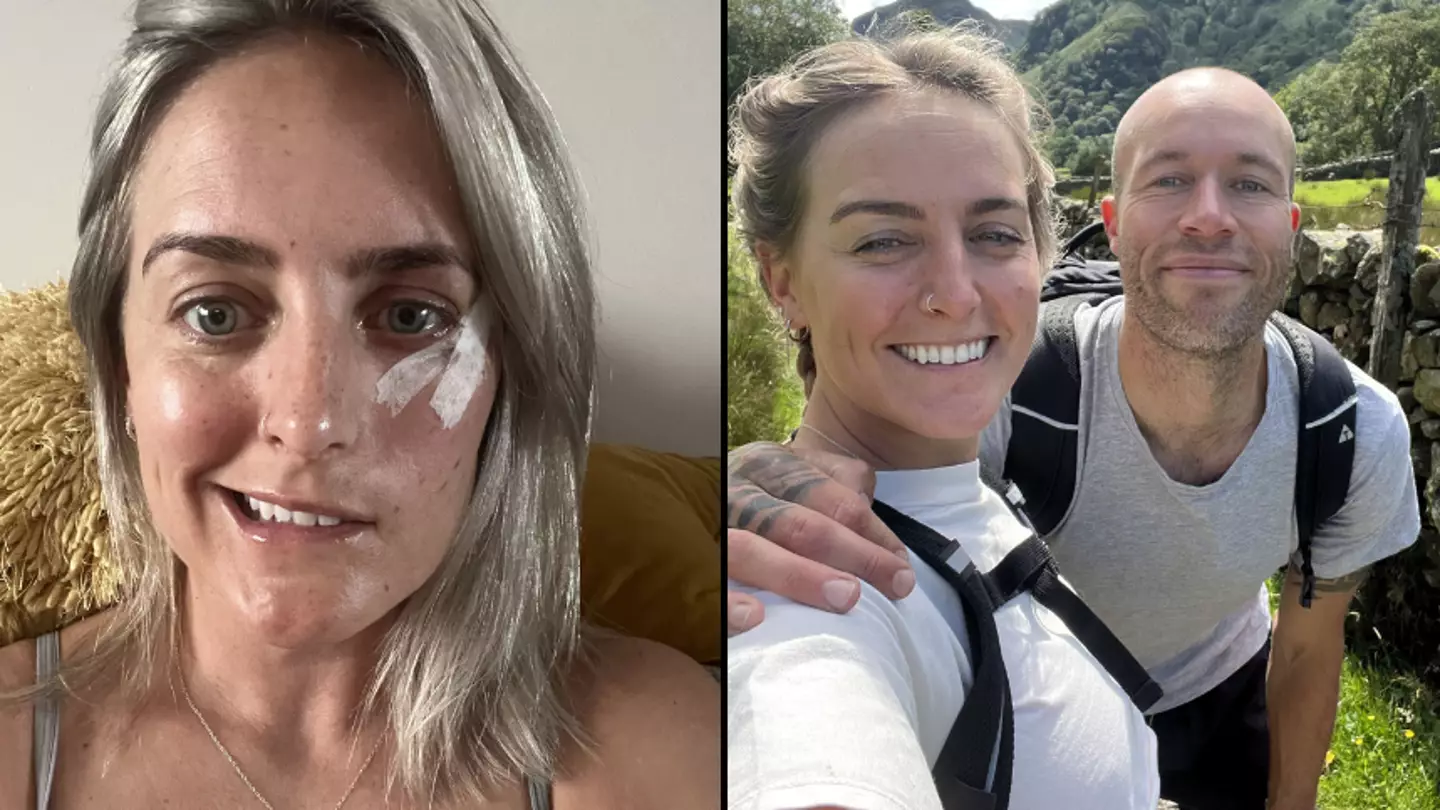
A firefighter has been left struggling to recognise herself after stress left her face paralysed from a rare health condition.
Emma Hawkins from Suffolk, UK, first noticed something was wrong after working a late shift on 9 June.
The 35-year-old woke up to take a sip of water around 3pm and struggled to drink properly.
After taking a look in the bathroom mirror, Emma was stunned to see how ‘droopy’ her face was and thought she was having a stroke.
She called 111 and an ambulance was sent to her home in Brantham.
“At first it was just my mouth and then I went down to see my fiancé and kind of made a joke out of it saying I think I was having a stroke,” Emma said.
“He went grey and said I think we need to get you to A&E. I rang 111 instead and they said they were going to send an ambulance right away.
“I have kind of grown up with a dark humour so I tried to laugh it off. The enormity of it was not breaking through.”
Doctors initially gave her a false diagnosis of Bell’s Palsy, but as symptoms worsened over the next four weeks, they confirmed that she had Ramsay Hunt syndrome (RHS), brought on by stress.
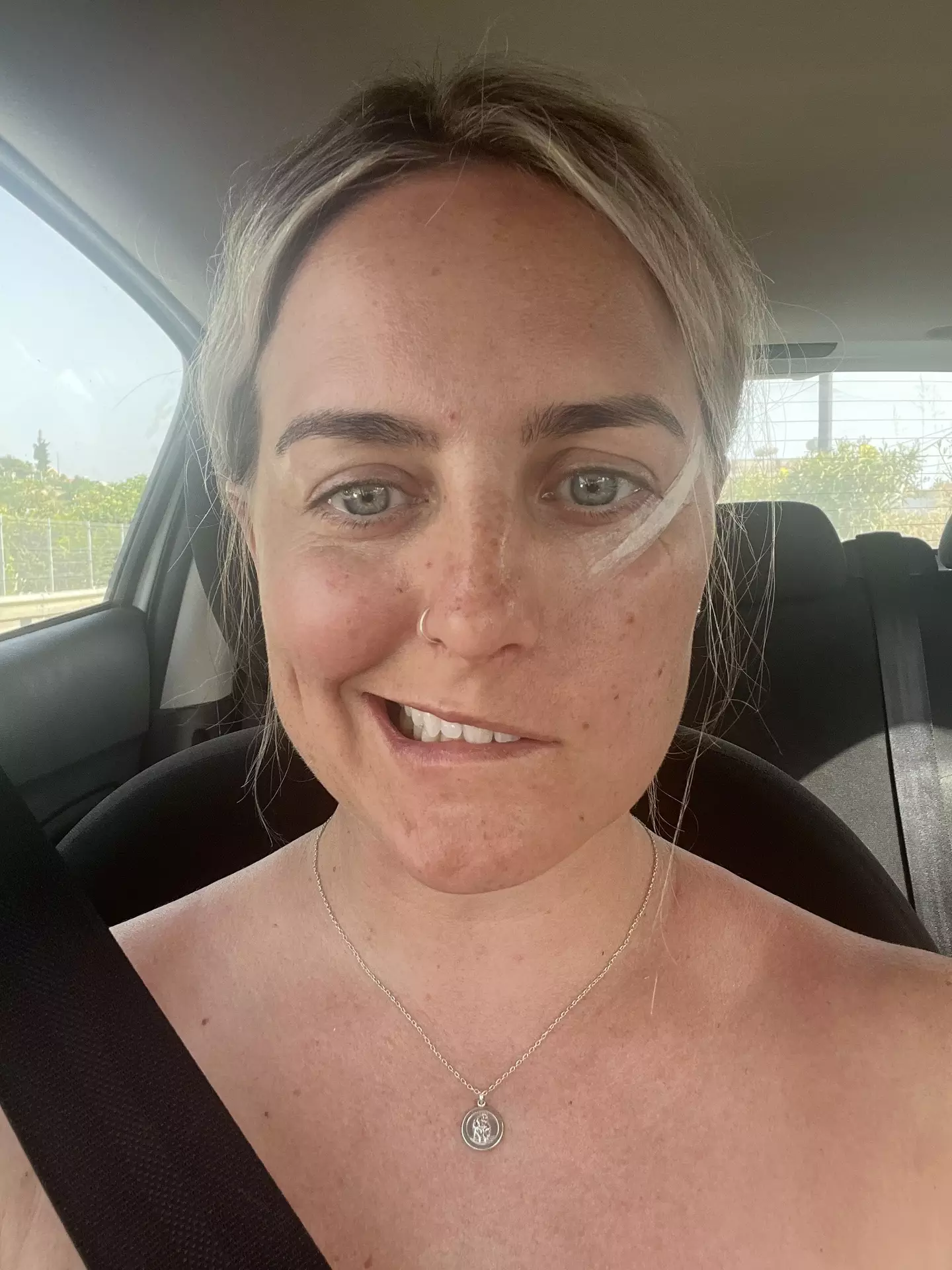
Emma was told that the condition was, in part, caused by stress (Kennedy News and Media)
The rare neurological disorder causes facial nerve weakness or paralysis, a ringing of the ears, and hearing loss.
You might recall pop star Justin Bieber suffering from the health condition in 2022.
It took him nine months to recover and get his smile back.
“I had been working a lot and burning the candle from both ends a little bit,” Emma admitted.
“They don’t really know why a person develops Bell’s Palsy, but RHS is more brought on by the shingles or chickenpox virus.
“They believe that after I had chickenpox the virus planted itself in my ear canal and has been lying dormant in there [since I was a child].
“I had a lot of personal stress and they think that where I have been run down the shingles develop in my ear canal which has caused inflammation and crushed my nerves.”
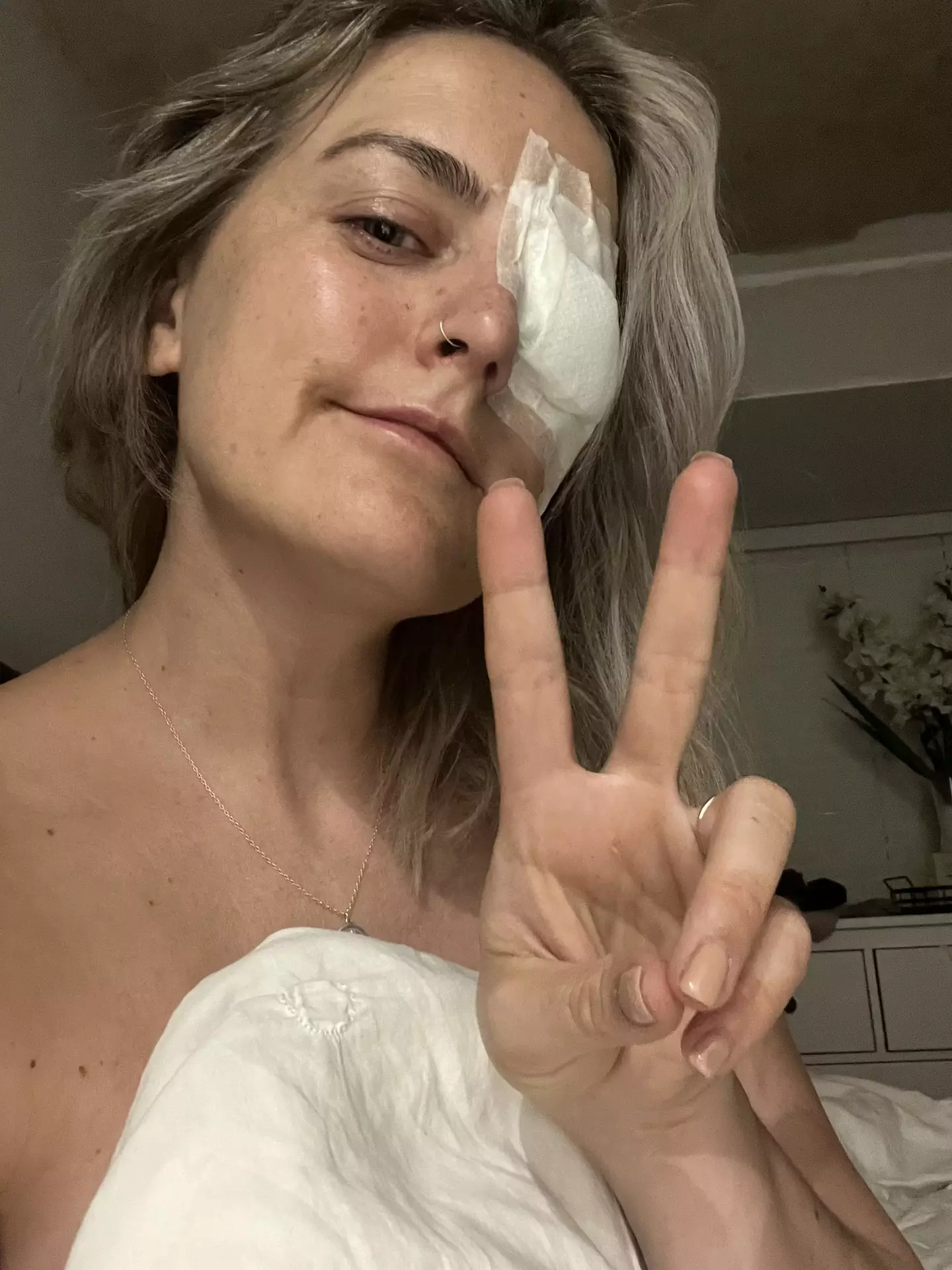
Emma is now on medication (Kennedy News and Media)
Emma was prescribed with an antivirus medication and has been put on the waiting list for nerve transfer surgery.
Emma said: “I’ve been living with my symptoms for three months now. Physically I look completely different.
“I am quite a bubbly and smiley person and now I can only smile on one side of my face.
“Because of the imbalance in my ear and one of them not working properly and neither is my eye I get a lot of dizziness.
“I’m quite an active person and I work for the fire service but I can’t work at the moment.
“It’s dramatically changed my life. I can’t do the things I want to do.
“It’s sad when I look in the mirror and don’t recognise the person looking back at me.

Emma doesn’t recognise her old self anymore (Kennedy News and Media)
“Some days are easier than others. If I feel upset, I just want to stay in the house. Other days I’ll force myself to get up and out.
“It’s frustrating and difficult and I just want my life back and my face back.”
As well as waiting for treatment, Emma is now focused on raising awareness of RHS and has urged others to take the appropriate medication straight away.
She added: “With the recovery of the nervous system it is a really long, slow and unknown process.
“They said rest and as little stress as possible can help. If my face does come back it’s because I’m relaxed and resting.
“It’s one of those conditions where there is so little known about it and everyone is different.”
Featured Image Credit: Kennedy News and Media
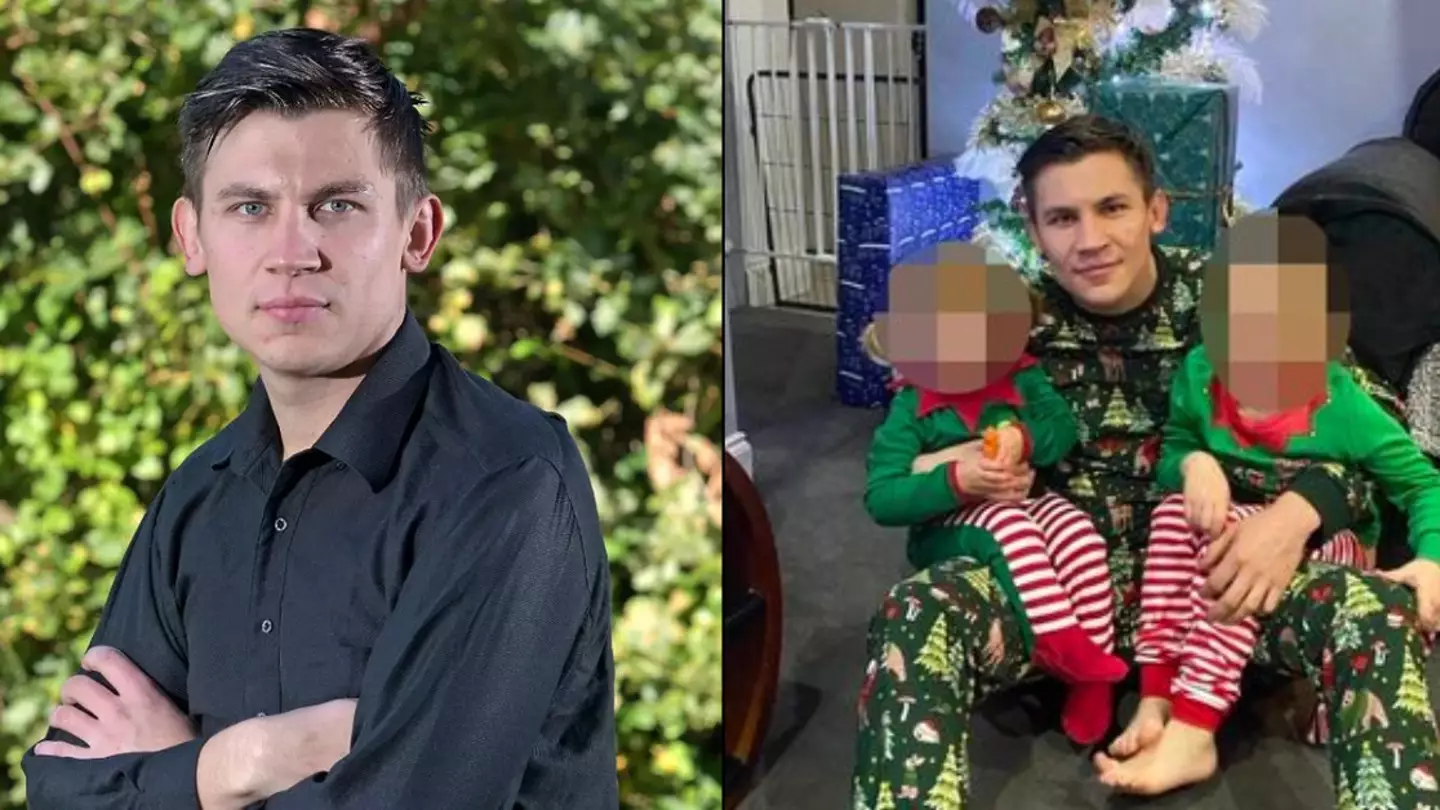
A dad has spoken out about his heartbreak of having to wait months to meet his baby girl after a DNA test was falsified by his ex.
Kyle Fitton said a ‘spiteful’ Georgina Saville threatened he wouldn’t ‘ever’ get to see his kids again.
She had tried to de-rail the father’s legal bid to get access by claiming the baby’s biological dad was her new boyfriend, Danny Mellows. But after last week’s trial at Southampton Crown Court, she’s been warned she could now face jail after being convicted of perverting the course of public justice and a rare charge of wilfully making a false declaration as to a birth.
The pair already had a daughter together but she claimed their newborn wasn’t his in March 2022. Saville then presented a fake DNA test and lied on a birth certificate.
“It’s taken so long to get to this stage and to actually get to the truth,” the 28-year-old said. “It’s just a massive sense of relief. I have been quite upset, stressed all the time.”
.png)
His daughter was nearly two when he finally met her. (Simon Czapp/Solent News)
Fitton’s children are now under legal guardianship of his mother, and he gets to see them every day. He explained that despite their toxic relationship, he ‘kept going back to’ Saville because of their eldest daughter.
“I wanted to be a family, I wanted to try my hardest and have that family, as one unit,” he added. Fitton said it was ‘frustrating’ when she claimed Mellows was the father as he ‘knew from day one’.
“I knew from that point, I had to fight this, I had to fight for the truth,” he said. “I knew she was mine and I had to prove this just to get the truth.”
READ MORE:
LOGAN PAUL ANNOUNCES BIRTH OF FIRST CHILD
MUM ADMITS HER 9-MONTH-OLD HAS MORE MONEY THAN HER
The court heard how Saville made Fitton and his mum follow strict ‘rules’ and at one point he worried she might carry out her threat of taking them away.
“It absolutely scared me. I thought I was going to have my girls taken from me and nothing could be done. I thought it was going to be the end of the world – they are my world.”
The dad said while his two daughter’s bond now is blossoming, the 15-month wait to meet his baby was heart-aching.
“[The newborn] had never met me, it took some time to bond that relationship.
“But now it’s amazing. We were finally united before her second birthday.”
.png)
He knew all along he was the father. (Facebook)
On why it had taken so long, he said: “[Saville] said I was never allowed to meet [the baby], but mum was.
“Even if I said to mum [to say to Saville I wanted to] it would be a no. That’s when I had enough of it, I said I need to do something and that’s when I started court proceedings.
“And then it took a long, long time.”
Now, every day is ‘absolutely amazing’ as Fitton added: “It’s the best part of my day, knowing I finish work I get to go home and see my daughters.
“Walking into mum’s and they both shout ‘daddy’. It’s just a sense of relief they are there, they are happy and they are safe.”
Now the process is finally over, he says other mums or dads in similar situations ‘need to push for the truth’.
“This court case, the family court case has broken me, financially, emotionally and physically,” he said. “I’m glad I kept pushing and pushing until the truth came out. It has taken me two years to get access to the girls. It has killed me.”
Featured Image Credit: Simon Czapp/Solent News/Facebook
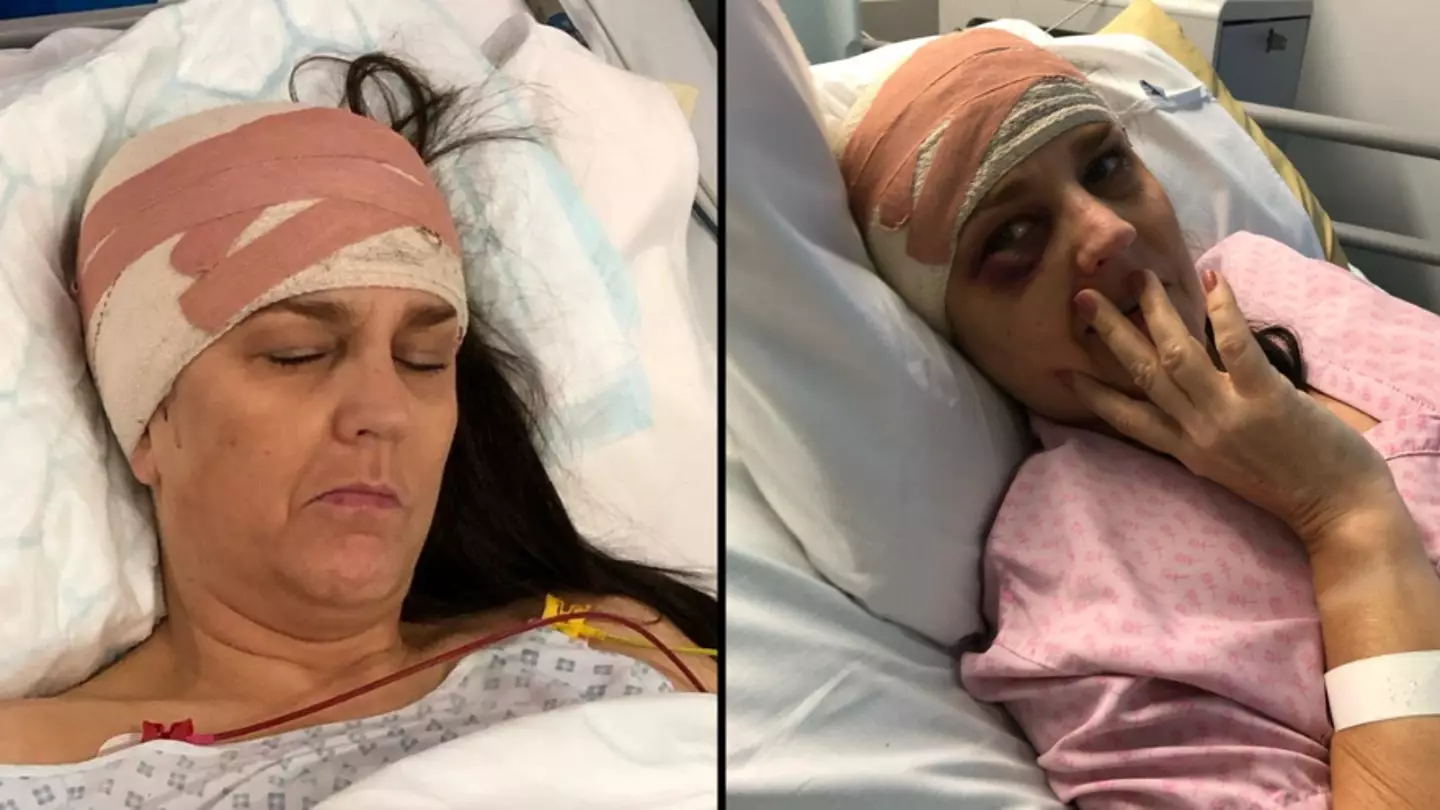
A woman who heard a whirring sound in her ear thought it was tinnitus, but ended up being diagnosed with a brain tumour.
Denise Wingfield had been struggling to get to sleep because of a dull and ‘funny’ noise in her right ear, and when she was referred to a specialist she was told it would be tinnitus.
However, when the 55-year-old had an MRI scan doctors found an anomaly on her brain.
A month later, Denise was undergoing a nine-hour awake craniotomy after which she was diagnosed with grade 2 oligodendroglioma – a rare brain tumour.
Denise went in for further surgery after some complications from the craniotomy, and the mum then had six weeks of radiotherapy followed by four rounds of chemotherapy.
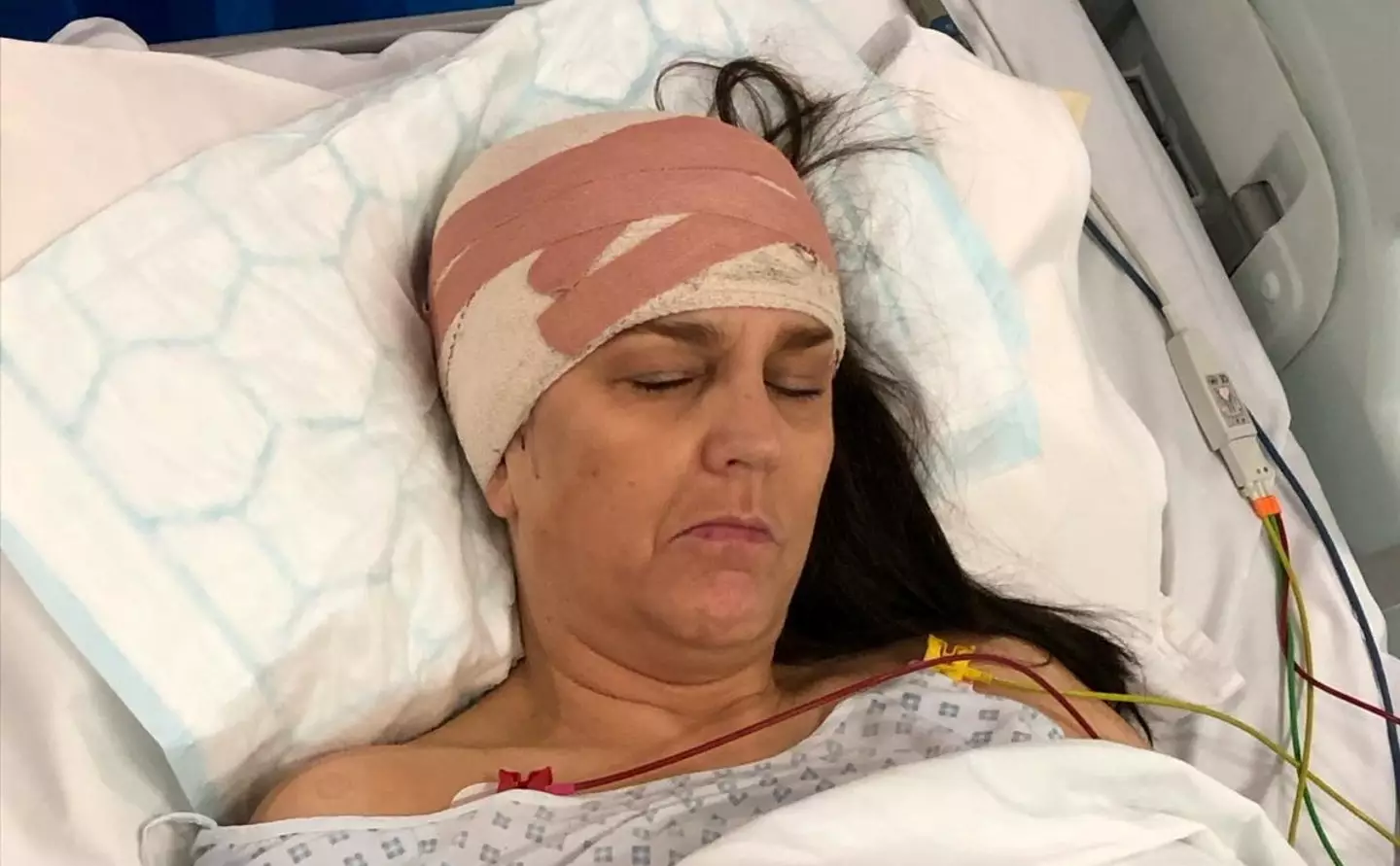
Denise Wingfield was diagnosed with the rare brain tumour after an MRI scan. (SWNS)
A scan in January of this year showed that the Bristol woman’s brain tumour had grown.
“I had no symptoms other than a funny noise in my ear,” Denise said of the signs leading up to her diagnosis.
“When I tried to sleep at night it seemed louder although it was there all the time – I never for a moment imagined it was caused by a brain tumour.
“Due to my tumour being slow growing, my medical team want to wait for further growth before they place me on another treatment plan – including a less brutal version of chemotherapy.
“Although it’s scary to know that it is still growing, I am being scanned regularly which offers some comfort.”
It was October 2019 that the 55-year-old was referred to a specialist, and her diagnosis of a rare brain tumour came in November that same year.
The mum of three struggles with fatigue and has minor balance issues, but she is determined to raise money for Brain Tumour Research.
Last month she hosted a coffee morning for Wear a Hat Day and in May Denise will be doing a ‘200k in May’ challenge.
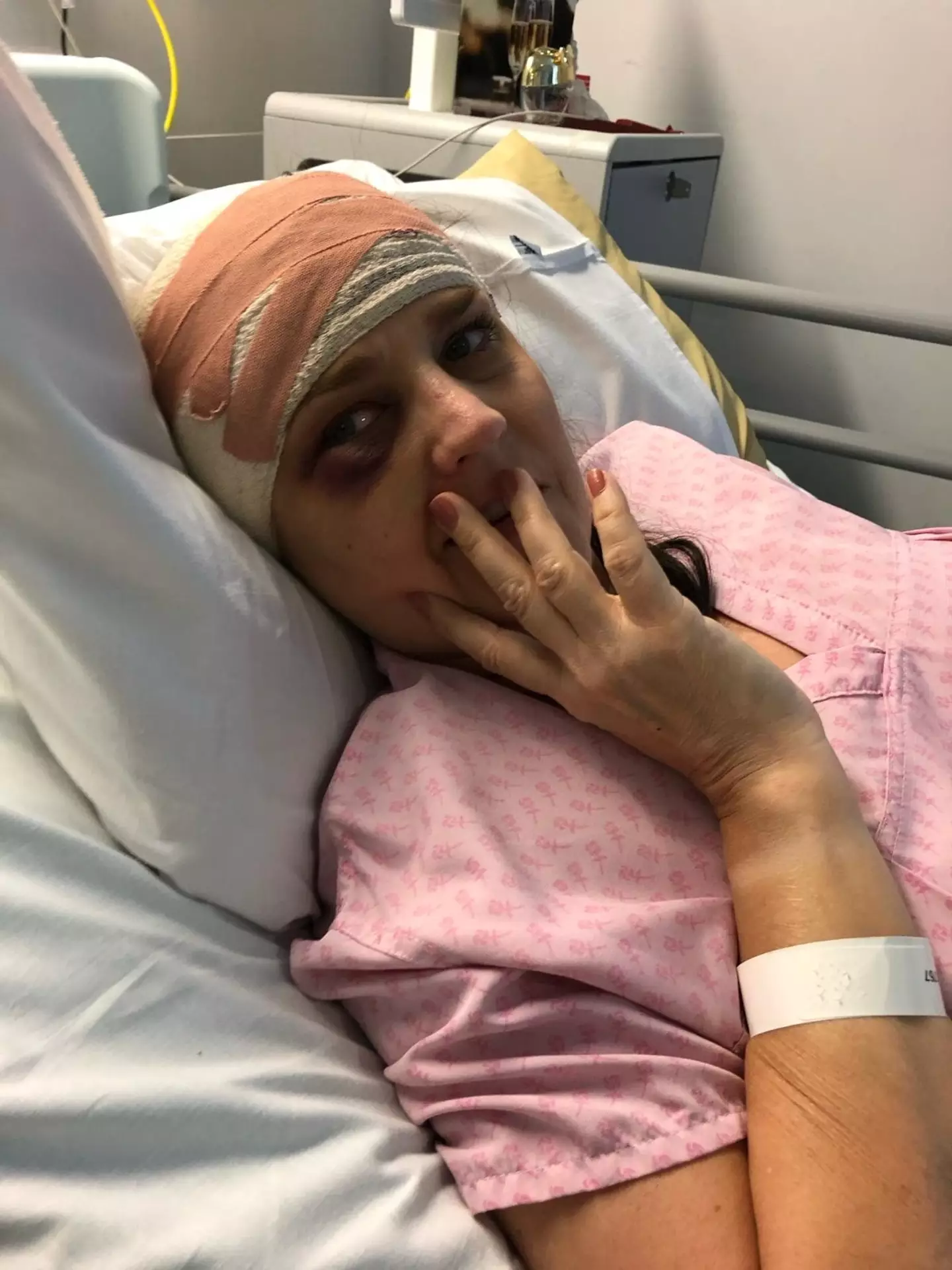
She and her doctors initially thought it was tinnitus, as Denise could hear a noise in her ear. (SWNS)
She can run, jog, run, cycle and swim the distance over the month for Brain Tumour Research.
Denise said: “Walking has become quite therapeutic for me. I’m able to put on my headphones with some music and get on with putting one front of the other, being mindful in the moment.
“I’ve found myself wanting to live my life to the full. In the years since surgery, I have travelled and taken part in adrenaline fuelled activities including a zip wire with my son from the end of Bournemouth pier to the beach.”
Louise Aubrey, community development manager at Brain Tumour Research, said: “Sadly Denise’s story is not unique.
“In the UK, 16,000 people each year are diagnoses with a brain tumour, yet just 1% of the national spend on cancer research has been allocated to brain tumours since records began in 2022.”
You can donate to Denise’s fundraiser for Brain Tumour Research here.
If you’ve been affected by any of these issues and want to speak to someone in confidence, contact Macmillan’s Cancer Support Line on 0808 808 00 00, 8am–8pm seven days a week.
Featured Image Credit: SWNS
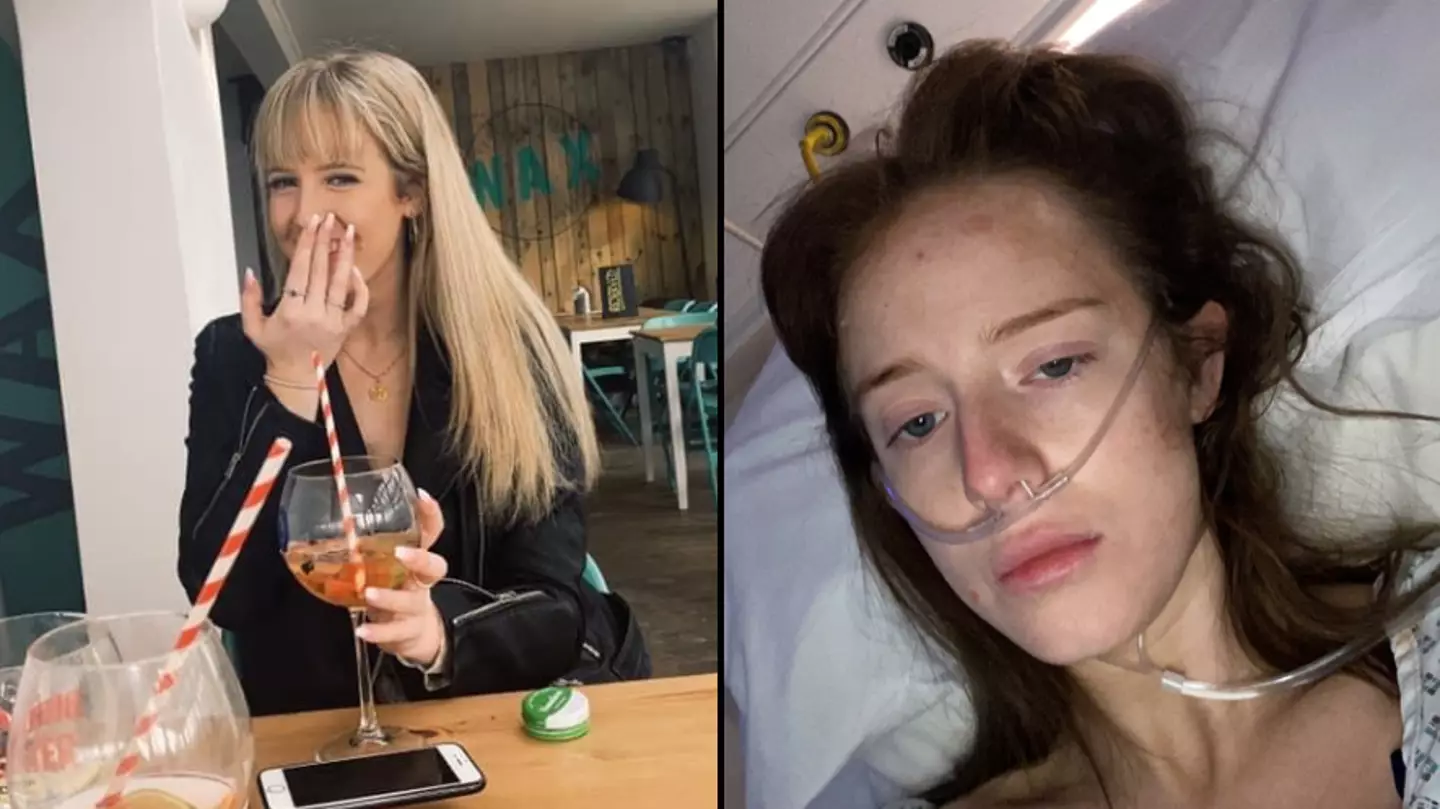
A woman has told how her brain tumour symptoms were dismissed by doctors who put them down to her being a typical fresher and ‘drinking too much’.
Lucy Younger explained that her repeated pleas for further investigations to be conducted were brushed off by GPs who thought she was ‘just being a fresher’ and boozing excessively.
But it turned out that something a lot more sinister was going on – and the 24-year-old is now sharing her story in the hopes of highlighting the importance of ‘advocating for yourself’ when up against the health system.
Just before beginning her English degree at Goldsmiths, University of London in September 2018, Lucy began experiencing a series of strange symptoms.
She found herself routinely zoning out, experiencing déjà vu and having visual hallucinations, but suspected it might have just been down to her huge lifestyle change and partying with her uni pals just a bit too hard.
The student decided to cut back on the wild nights out, so decreased her alcohol consumption and stayed in a lot more.
But still, her symptoms persisted – and they started getting worse.

Lucy Younger was told by doctors that her symptoms were a result of her ‘drinking too much’ (SWNS)
Lucy’s hallucinations began to affect all of her senses, recalling how she could feel pins and needles in her face, taste metal and smell bacon. At the same time, she also began to become plagued by sharp headaches.
However, she claims doctors weren’t concerned when she raised her worries with them.
“Straight away, they were like – it’s anxiety,” Lucy recalled.
“I didn’t feel all that anxious, but I’d just done a big move from Newquay to London and was meeting lots of new people – so I thought, ‘I guess my brain’s just working overtime’.
“But I was still skeptical – I felt really happy with where my life was at that point. They said, ‘It’s a mixture of you being anxious and drinking too much’. They were making out I had an issue. It just got blamed on being a fresher.”
The trainee journalist, from Crystal Palace, London, then found herself struggling to concentrate during lectures.
Medics determined that all these issues were down to depression and panic attacks, so Lucy was prescribed with anxiety medication – putting her trust in her GP as she presumed ‘they know what they’re talking about’.
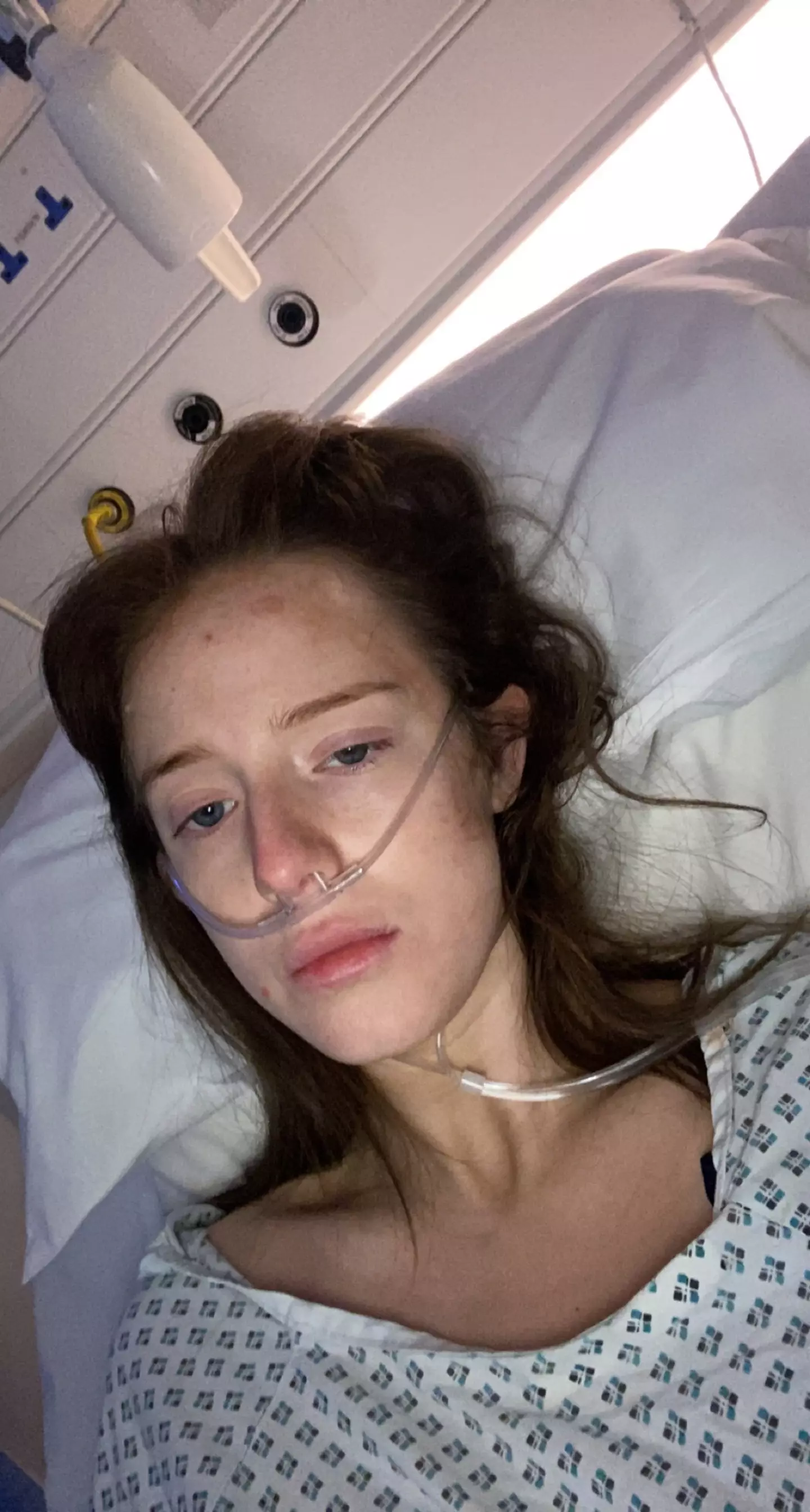
The 24-year-old was later diagnosed with a brain tumour (SWNS)
It didn’t work, though, and Lucy went back to the doctors once more – who then said her symptoms were hormonal and caused by polycystic ovary syndrome (PCOS).
“I just knew something wasn’t right,” the student said.
Things all then came to a head when Lucy returned home in March 2020 during her second year of university after the pandemic hit, as she suddenly started to experience seizures and would lose consciousness.
Describing the severity of her symptoms, she said: “I started getting migraines so bad the entire right side of my body would go numb.
“I thought, I’m either going into psychosis or I’ve got a tumour – it definitely wasn’t depression or anxiety.”
After putting all these red flags into Google, everything was pointing to the fact that she may have epilepsy or a brain tumour, but health practitioners still remained unconvinced.
Lucy added: “They said, ‘You’re too young’. ‘A girl like you wouldn’t have a brain tumour’.”
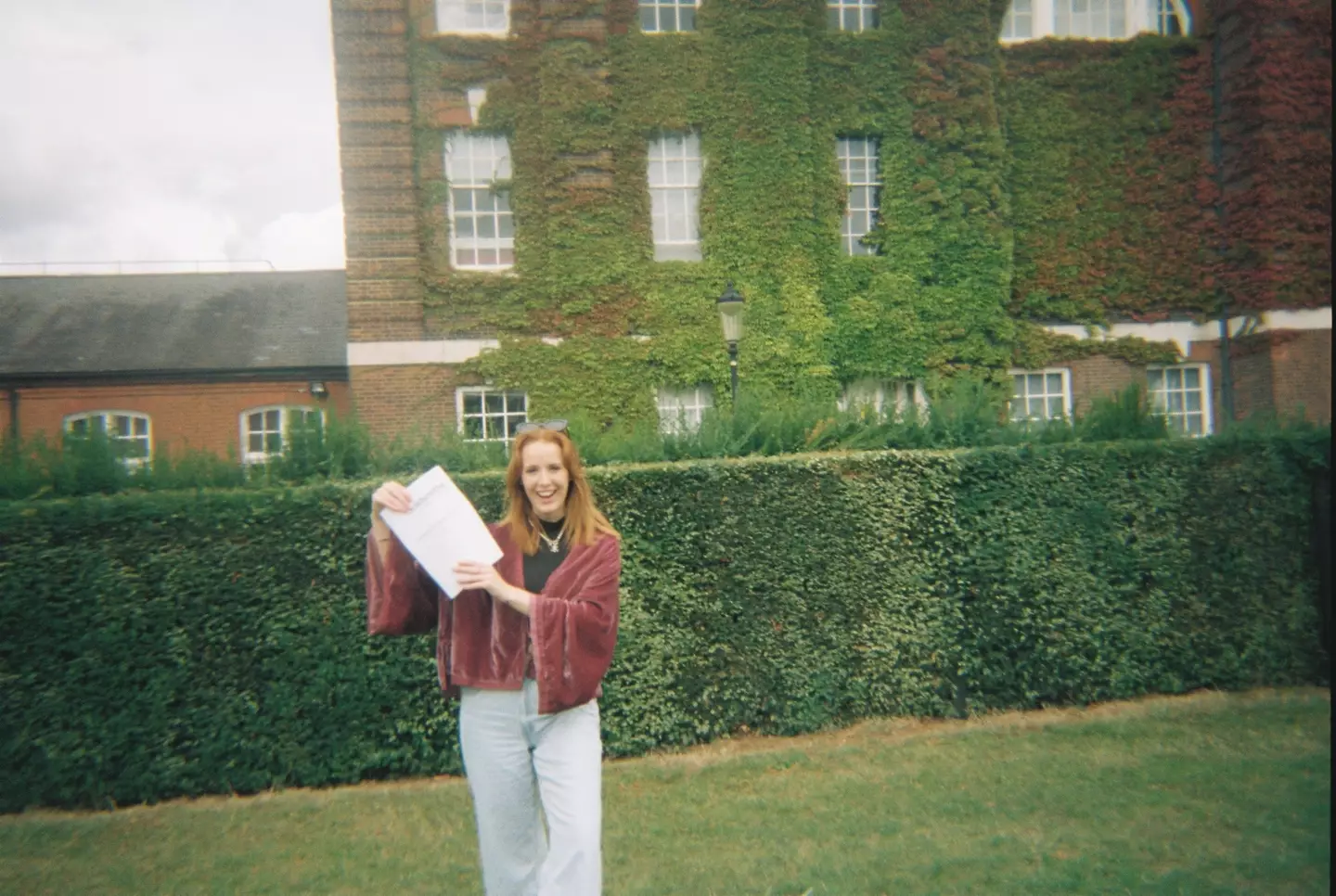
She managed to return to university to complete her studies in 2021 (SWNS)
After reaching her breaking point while suffering from hallucinations, the student rang a local pharmacist and cried down the phone to him about her health woes.
He ended up writing a letter to her GP, recommending they refer her for a CT scan as soon as possible.
“My pharmacist advocated for me – once he’d spoken to my GP, they arranged for me to have a CT scan,” Lucy said.
“I went in the July – and finally got my diagnosis of a benign brain tumour.”
Four months later, she underwent surgery to remove the tumour and was later able to return to university in 2021 to finish off her degree.
Lucy is now able to live a normal life, however, she is adapting to dealing with epilepsy and short term memory loss as a result of her brain tumour – but she wants to remind people that no one knows your body better than you.
“If there is something wrong you need to advocate for yourself,” she added. “I caught my brain tumour early.
“If I hadn’t there could have been a chance it wouldn’t have been removed and the ending would have been a different scenario. People think a brain tumour is a death sentence – it’s not always that way.”
Featured Image Credit: SWNS
Topics: Alcohol, Food And Drink, Health, UK News




